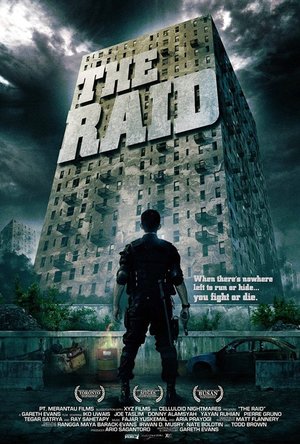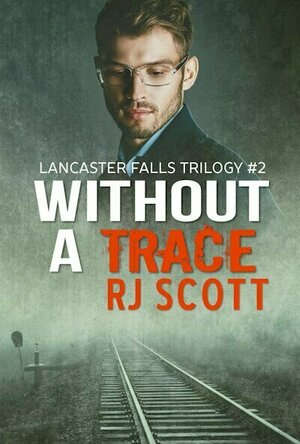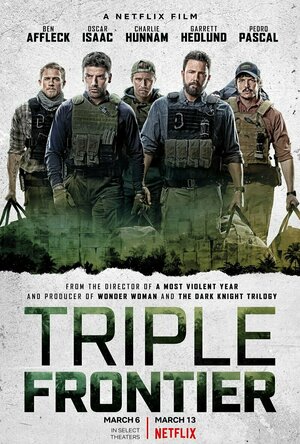JT (287 KP) rated The Raid (2011) in Movies
Mar 10, 2020
The film follows Rama (Uwais) a rookie cop who is part of a S.W.A.T team sent into a tower block to bring down drug lord Tama (Sahetapy), who is holed up surrounded by a army of psychopathic knife wielding maniacs. This is a man that is not to be messed with as we see him viciously execute five men at close range. When he runs out of bullets on the last man we think he’ll let him go. Not so, as he goes to the desk draw, in it are a couple of bullets and a hammer….he takes the hammer.
Meanwhile as the team arrive at the building it’s clear that they are not going to get it all their own way as the majority of them are picked off one by one leaving only a few survivors trapped on the seventh floor. With seemingly nowhere to go, the small band of brothers agree to finish what they started, and go get Tama. The action is explosive, right from the moment the cops set foot inside the carnage begins and doesn’t really let itself catch breath for the 90 minutes.
The fight scenes in-particular are brilliantly choreographed, the climatic fight at the end just seems to keep going and going. A lot of work has gone into getting them just right, in fact the character Mad Dog who is played by Yayan Ruhian had a big part to play in orchestrating them.
There might be the risk that seeing one Indonesian getting the shit kicked out of them one after another may become boring, but that is not the case. Director Gareth Evans has immersed us fully in the action, with wide angled shots giving us a a beautiful picture to look at.
It’s a fully enjoyable film that will have you wincing in pleasure, there must be something about the tower block that attracts, but Evans has taken the action genre to great heights with this one.
Debbiereadsbook (1664 KP) rated Without a Trace (Lancaster Falls Trilogy #2) in Books
Mar 23, 2020
Bok two in the Lancaster Falls trilogy. I would say you really SHOULD read book one, What Lies Beneath, before this one. There is a underlaying story line that runs through all three and you need the information that comes out in that book.
Drew returns home when his brother's remains are discovered. Logan is a cop in town, and the pair butt heads. But deeper than the need to know what happened to his brother, Drew finds he needs Logan at his side. Both men have their secrets, though. As the town reveals its darker side, Drew and Logan have to decide whether the other is worth the heartache.
So, book 2 and Lancaster Falls is giving up its secrets. Darker, deadly and so much MORE than book one, I LOVED this!
Drew ran, after Casey disappeared and did not return. He said some things, his mum said some things and they fell out, and Drew ran away to the army. Now, with Casey's body being found, Drew returns to face not only his own demons, but Casey's too. Logan is a distraction, one he will willing use to attempt to shut out his problems.
Logan will, in turn, use Drew but to a lesser extent. Their first coming together is angry, its a battle, and its glazed over in a way that I really and honestly LOVED! I mean, the whole scene is a couple of pages, but it packs a powerful punch. It sets the way for these two, in a way I really enjoyed watching develop, and in a way I really didn't quite see coming.
Something set me off about certain people, and turns out, I was right, but now I'm left with some questions about how things will become clear as to what happened, not only to Casey, but the others.
Again, nothing is laid out for you, and I find myself putting bits together all wrong and now, I want book three! I NEED book three and I have to wait til June. I need to know what happened to everyone, and what that epilogue means, cos let me tell ya, I have no freaking clue how this will play out and I bloody LOVE that I don't!
5 more amazing stars!
**same worded review will appear elsewhere**
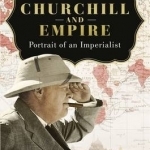
Churchill and Empire
Book
A genuinely new biography of Churchill, focusing on his contradictory and lifelong relationship with...
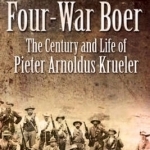
Four War Boer: The Century and Life of Pieter Arnoldus Krueler
Book
The amazing life of Pieter Krueler (1885-1986) provides a window into a full century of conflict...
Jubal Early: Robert E. Lee's Bad Old Man
Book
In Jubal Early: Robert E. Lee's Bad Old Man, a new critical biography of Confederate Lieutenant...
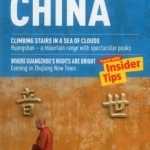
China Marco Polo Guide
Book
With this up-to-date, authoritative guide you can experience all the sights and recommendations for...

Wade-O Radio Weekly Podcast
Podcast
The Wade-O Radio Show is an international, terrestrial, Internet radio show, and podcast that...
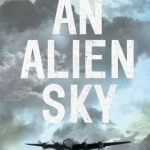
An Alien Sky: The Story of One Man's Remarkable Adventure in Bomber Command During the Second World War
Book
By any measure, Andy Wiseman (born Weizman) is a lucky man. The only son of a Polish father and an...
Charlie Cobra Reviews (1840 KP) rated Triple Frontier (2019) in Movies
Jul 5, 2020
In Columbia fighting drug crime, Santiago "Pope" Garcia (Oscar Isaac), has been working for 3 years. Finally the moment he's been waiting for occurs, when his informant, a woman named Yovanna (Adria Arjona), offers the location of a big time drug lord in exchange for smuggling her brother and her out of the country. She also tells him that the drug lord Lorea keeps all his money with him in his safe house in the jungle. Pope recruits his friends, a group of ex Army Special Forces, for a mission to take out Lorea and seize the money for themselves. But when things go wrong it's one unexpected turn of events after the other, with things spiralling out of control. In an epic battle for survival they are pushed to their breaking point, putting their morals, skills, and loyalties to the test.
This movie was good. Wasn't quite what I expected. As good as it was, I feel like it was missing something. It was a little slow in the beginning, after the first action sequence, and pacing was a bit off. Definitely as advertised in being an action/thriller. If you like action scenes where they shoot-'em-up, this definitely has plenty. I just felt with the pacing that they were far and in between. The acting was very good, the only thing I would say is that the characters didn't have much to keep you connected to them and really care about what happens to them in the long run. It felt like they weren't fully fleshed out and they could have done more to do that better. One thing it did do very well was how it showed the motivations of some of the characters and what led them to the decisions they made. I give this movie a 7/10.
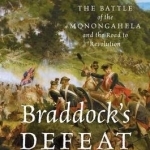
Braddock's Defeat: The Battle of the Monongahela and the Road to Revolution
Book
On July 9, 1755, British and colonial troops under the command of General Edward Braddock suffered a...
